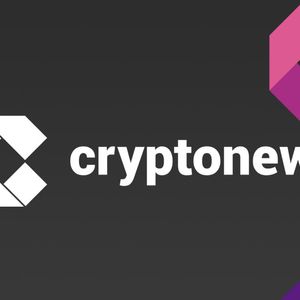Russia’s ‘Kraken’ Darknet Market Crypto Sales Soar 68% as Global Trade Falls
3 min read
Key Takeaways: Russia’s darknet markets grew 68% while global sales fell 15%. Strict KYC pushes darknet vendors toward DeFi platforms. Monero gains traction as darknet operators ditch traceable Bitcoin. Blockchain analytics firm Chainalysis has reported a 15% decline in global cryptocurrency sales across darknet markets in 2024, according to a data-driven blog post on May 16. Altogether, these markets brought in just over $2 billion in Bitcoin, while fraud shops dealing in stolen or counterfeit goods saw around $225 million in inflows. However, this overall slowdown wasn’t universal. Russia’s darknet market defied the trend, recording a 68% surge in crypto sales, which indicates a sharp regional divergence in illicit crypto activity. Why is “Kraken” (Darknet Market) Dominating Russia’s Underground Economy? The global darknet markets continue to evolve, and Russia is at the center of a surprising shift. In 2024, most countries saw crypto sales on darknet markets fall , but not Russia. Chainalysis revealed that the top Russia-based darknet markets remained dominant, but one stood out. The “Kraken” darknet market (unrelated to the legitimate Kraken crypto exchange) surpassed Mega to become the highest-earning darknet market of the year. While Mega’s revenue fell by over 50% year over year, the Kraken darknet market saw a dramatic 68% rise. Kraken darknet market leads by 68% | Source: Chainalysis By the end of 2024, the Kraken darknet market had generated $737 million in on-chain crypto sales. Meanwhile, Blacksprut, which initially gained traction alongside Mega, saw its revenue drop by 13.6%. Crypto sales are only part of the story. Russia’s darknet markets are steadily evolving as vendors grow savvier and more coordinated, increasingly outsourcing key functions—hosting, payments, and logistics—to turnkey providers like iKlad.biz and Klad.cc. When Hydra Market collapsed in 2022, its network didn’t disappear. Former affiliates simply regrouped, tapping into the same shadowy ecosystem now driving Kraken’s expansion. Authorities are also pushing hard against this underground resurgence. For example, in December 2024, a Russian court sentenced Stanislav Moiseyev, Hydra’s founder, to life in prison. Fifteen of his associates received sentences ranging from 8 to 23 years. In the U.S., federal authorities arrested Taiwanese national Rui-Siang Lin in May 2024. Lin allegedly ran Incognito Market, a darknet market that disappeared after an exit scam in March. Investigators linked Lin to crypto transfers made to an exchange account in his name. His charges include a wide range of cyber and financial crimes . But criminals are adapting. Bitcoin, once the currency of choice, now poses a risk due to its traceability. Many darknet market operators are switching to Monero, a privacy coin that hides transaction details. Monero’s activity, however, lies beyond the scope of the Chainalysis report. DeFi Creates New Illicit Loophole for Darknet Market Vendors The report also observed a changing trend. Over the past few years, darknet market vendors used centralized exchanges (CEXs) to convert crypto to cash, but this changed in 2024. Vendors increasingly moved funds to decentralized finance (DeFi) platforms instead. Darknet vendors moved from CEXs to DeFi in 2024 | Source: Chainalysis Vendors sent more of their earnings to DeFi platforms and personal wallets than ever before. While CEXs still play a major role in the crypto sales cycle, DeFi is now a rising alternative. The appeal is simple. DeFi offers extra privacy and lighter oversight, letting users bypass KYC checks and other red tape, which makes it a convenient way for criminals to cash out quietly. Retail vendors are storing more crypto on-chain, while wholesale vendors are leaning heavily on DeFi. This results in a more fragmented and harder-to-trace web of darknet market transactions. Frequently Asked Questions (FAQs) What new strategies are emerging in the darknet market ecosystem? Following the closure of major darknet markets, new models like Telegram-only marketplaces and platform mergers have appeared. For example, Haowang Guarantee was a massive Telegram-based black market that processed illicit transactions worth $27 billion before Telegram shut it down in May 2025. What role does AI play in detecting illicit transactions in crypto and DeFi? AI can help detect money laundering in crypto better than traditional methods. Some newly trained AI models can spot tricky transaction patterns that humans might miss. For instance, Lucinity is an AI-powered graph analysis product that can map wallet connections to find money laundering schemes. The post Russia’s ‘Kraken’ Darknet Market Crypto Sales Soar 68% as Global Trade Falls appeared first on Cryptonews .

Source: cryptonews



